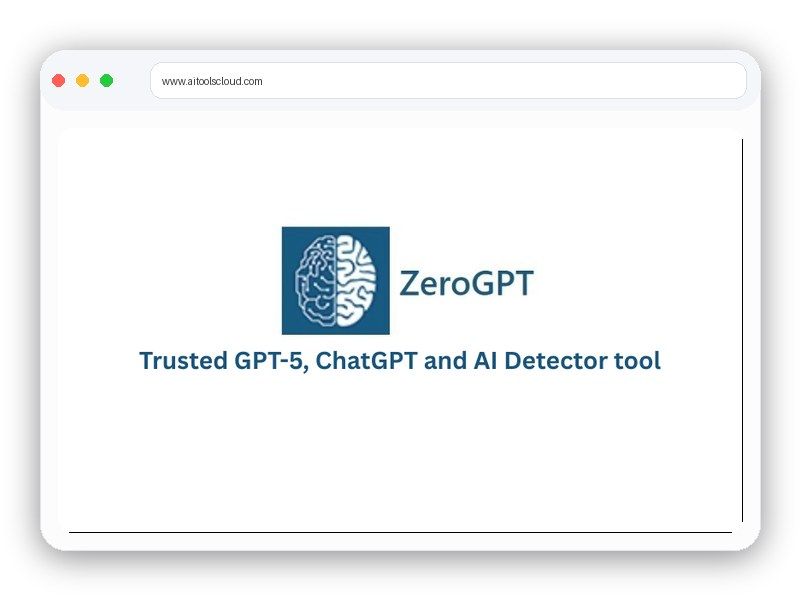ZeroGPT emerged in 2023 as one of the most widely used free AI detectors, offering a simple interface for users to quickly check text for AI-generated content. Its core technology, "DeepAnalyse," aims to identify text from major language models, including the latest versions like GPT-5. The platform is versatile, providing not just AI detection but also built-in plagiarism and paraphrasing tools. With features like sentence highlighting, PDF report generation, and API access for integration, it targets a broad audience, from students and educators to bloggers and content creators.
However, despite its popularity, ZeroGPT suffers from the same critical flaw as many of its competitors: a significant problem with reliability and false positives. While it can be effective at flagging purely AI-generated text, it frequently misidentifies human-written content, especially academic, cited, or formally structured text, as being created by AI. Its accuracy drops considerably on shorter texts, and users report wildly inconsistent results, sometimes flagging historical documents or even the Bible as AI-written. Because of this inconsistency, ZeroGPT should be treated as a preliminary screening tool at best. It is not reliable enough to be used as a definitive authority for making high-stakes decisions, such as those involving academic integrity.
